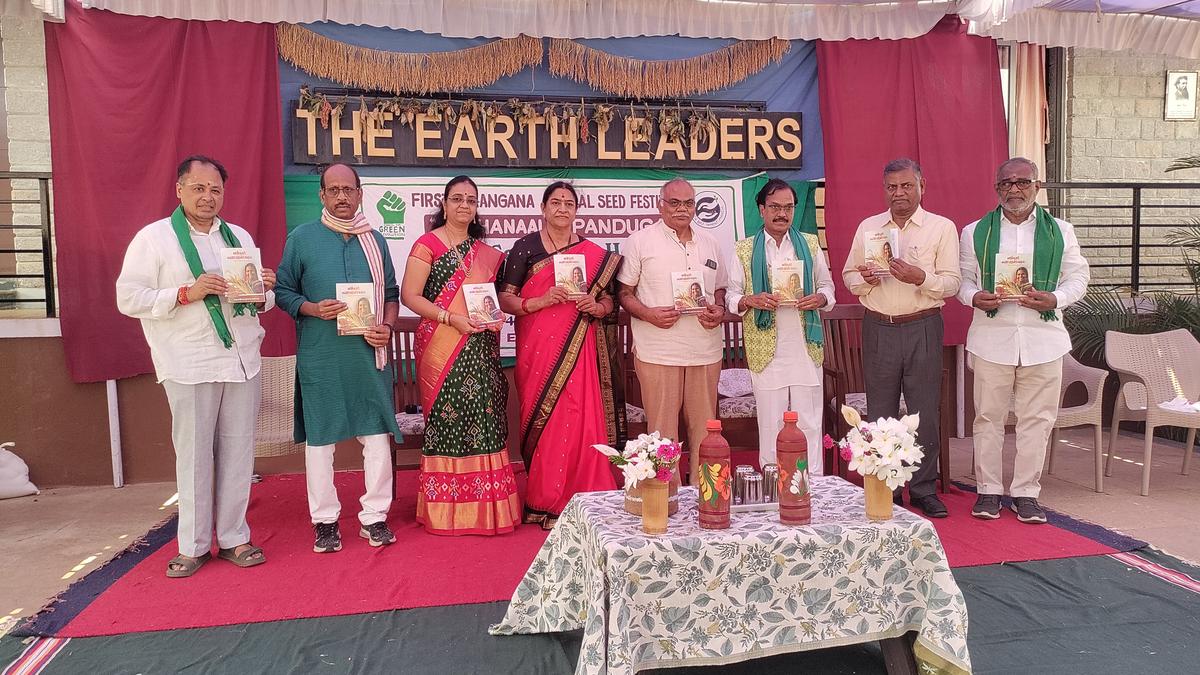
Experts call for action to preserve indigenous seeds: Kodanda Reddy
The Hindu
Telangana Agriculture chairman calls for legal action against adulterated seeds, emphasizes women's role in seed conservation.
Telangana Agriculture and Farmers Welfare Commission chairman M. Kodanda Reddy emphasised the need for legal measures to eradicate adulterated seeds and protect indigenous seeds.
Speaking on the last day of the three-day Seed Festival organised by the Council for Green Revolution (CGR) and Bharat Seed Swaraj Manch at Anmaspalli, Kadhtal Mandal, near here on Sunday, he underscored the need to see that the declaration made with 20 pressing points is implemented for the benefit of farmers.
He also stressed the importance of prioritising women’s roles in seed conservation and promoting mixed cropping and crop rotation. Former Commissioner of Telangana State Election Commission V. Nagi Reddy said there were no shops for seeds in the past as farmers used to store their best seeds after the harvest. He added that the farmers had been forced to leave such practices with the entry of corporate seed companies.
Noted film lyricist Suddala Ashok Teja said that he would work with CGR to pen songs on farmers and seeds, and bring them in the form of a CD.
Meanwhile, Nagi Reddy unveiled the book ‘Arogyamniki Aaharam-Bhadrathaku Vithanam’ written by agricultural policy analyst Donthi Narasimha Reddy. CCR presented certificates to experts from various agricultural organisations who attended the event.
Keshav Memorial College correspondent Shanti Vedula, agriculture expert Ramnath Srirama Krishna, CGR founder Leela Laxma Reddy, former RTI commissioner R. Dilip Reddy, farmers, students, professors, intellectuals, scientists and doctors participated in the programme.

Due to various reasons, many medical colleges across India have failed to appoint faculty according to the number of students, as per the NMC norms. Colleges are allegedly running classes through ghost faculty in post-graduate medical courses like anatomy, biochemistry, physiology, forensic medicine, pharmacology, and microbiology, where the number of students is less.

 Run 3 Space | Play Space Running Game
Run 3 Space | Play Space Running Game Traffic Jam 3D | Online Racing Game
Traffic Jam 3D | Online Racing Game Duck Hunt | Play Old Classic Game
Duck Hunt | Play Old Classic Game










